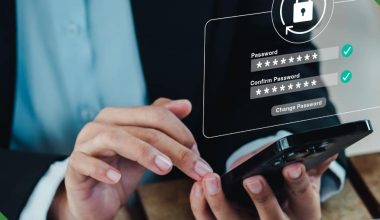Identity Fraud
Identity Fraud occurs when someone uses your personal information like your name, social security number, date of birth, mother’s maiden name, driver’s license, bank or credit card number, without your permission to commit fraud or other crimes.
What do Identity Fraudsters do with my information?
Thieves may commit identity fraud in a variety of ways. They may use your information to:
- Apply for loans and credit cards in your name.
- Establish telephone or utility services to run up charges
- Obtain your social security benefits without your knowledge.
- Rent apartments or purchase vehicles with your information.
How do they steal my Identity?
Identity Fraudsters may get a hold of your information in many ways. Some of their methods include:
- Dumpster Diving – Going through your trash to steal old bills or other documents with your personal information on it.
- Skimming – Duplicating your debit card via a cloning device attached to ATM’s.
- Pretexting – Posing as a legitimate company and claiming your account has issues.
- Phishing – Impersonating a trustworthy financial institution or company to trick you into revealing personal information.
- Changing Your Address – Sending your mail to their location so you are unaware of your information being captured.
- Stealing – Taking your wallet or purses.
How do I protect my Identity?
Protect your identity by protecting your personal information.
- Shred all papers containing personal information such a bank and credit card statements, bills and invoices.
- Go Green. Be paperless by paying your bills electronically.
- Do not give personal information on the telephone or internet unless it is a known source.
- Use software to protect your computer from attacks.
- Keep all pin numbers and passwords in a secure environment.
- Examine bills carefully and look for unrecognizable charges.
- Routine view your credit report.
What if I am a Identity Fraud Victim?
If you believe that you are an Identity Fraud Victim, file your complaint with the Federal Trade Commission (FTC) here. Find out more information at the FTC’s Identity Theft website: ftc.gov/idtheft . Immediately notify all your banks and credit card companies.
Also, obtain a copy of your credit report:
Equifax
www.equifax.com To order a report: (800) 685-1111 To report fraud: (800) 525-6285
Experian
www.experian.com To order a report: (888) 397-3742 To report fraud: (888) 397-3742
Trans Union
www.transunion.com To order a report: (800) 916-8800 To report fraud: (800) 680-7289
5 Essential Ways to Protect Your Bank Account from Fraud
In today’s digital age, protecting your financial information is more important than ever. At 1st National Bank, we’re committed to helping our customers safeguard their accounts. Here are five simple yet effective ways to protect yourself from bank fraud: 1. Enable Strong Security Features Take advantage of the robust security measures offered by your bank. At 1st National Bank, we […]
Understanding and Managing the NameDrop Feature
Unveiling iOS 17’s NameDrop: This guide dives into the feature’s potential privacy concerns and provides a simple, step-by-step process to disable it, ensuring your digital safety and control over personal data.
Zelle® Fraud and Scams: What to know.
Zelle® Fraud and Scams: What to know. In today’s world, everyone wants a fast, simple, and secure way to send money to friends and family. Zelle® has quickly become one of the most prominent peer-to-peer digital payments platforms used by Americans. Its popularity soared with consumers because of its ease of use and its price tag, free. In 2021, Zelle® […]




